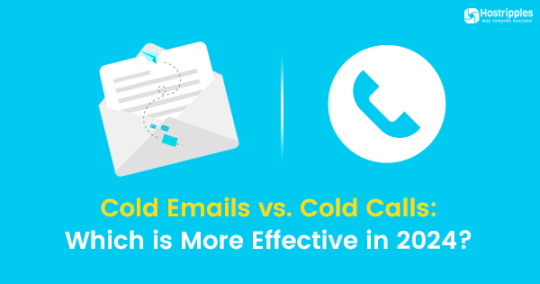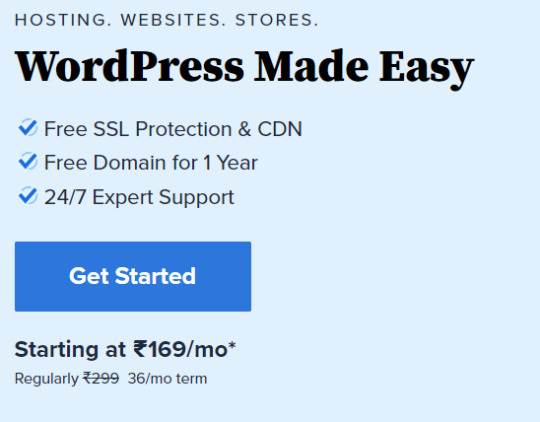#email hosting
Text
Best Email Hosting

Before you start hunting for the best email hosting provider, you need to decide what kind of features you need most. HostingSeekers is the best option for the email hosting. With a business email, your customers can recognize your business as trustworthy, which is the first step to leading a successful business.
2 notes
·
View notes
Text
Leveraging Website Hosting Features for Enhanced Member Experience on Membership Sites
In the digital realm, membership sites stand as beacons of specialized content, offering an array of resources, courses, and exclusive community benefits. However, the backbone supporting these digital communities is often their website hosting. The right hosting features can significantly enhance the member experience, ensuring both satisfaction and retention. This guide explores how to leverage website hosting features to elevate your membership site in 2024.

Selecting the Right Hosting Service
The Foundation of Performance: Choosing a hosting provider that caters specifically to the needs of membership sites is crucial. Look for hosting solutions known for robust performance, high uptime, and scalable resources. Providers that offer dedicated or cloud hosting can often provide the bandwidth and processing power needed to handle large volumes of traffic and data, ensuring your site remains fast and accessible.
Prioritizing Speed and Uptime
Ensuring Seamless Access: For membership sites, any downtime or slow page loading can significantly impact user satisfaction and trust. Opt for hosting services that guarantee high uptime (99.9% or higher) and offer speed-optimizing features like solid-state drives (SSDs), content delivery networks (CDN), and caching tools. These features ensure that your members can access content quickly and reliably, enhancing their overall experience.
Enhancing Security Measures
Safeguarding Member Data: Security is paramount, especially when handling members' personal and financial information. Ensure your hosting package includes SSL certificates, regular backups, and robust firewalls. Some hosts also offer advanced security features like DDoS protection and malware scanning, providing an extra layer of safety and peace of mind for both you and your members.
Utilizing Scalable Resources
Growing with Your Audience: As your membership base grows, so will the demand on your website. Scalable hosting solutions allow you to adjust resources based on your site’s current needs, ensuring optimal performance during traffic spikes without paying for unnecessary resources during quieter periods. This flexibility is key to maintaining a smooth member experience as your site evolves.
Implementing a Reliable Content Delivery Network (CDN)
Boosting Global Performance: A CDN is a network of servers located around the world, designed to deliver your site’s content efficiently regardless of where your members are located. By caching content on multiple servers, a CDN reduces the distance data must travel, speeding up load times for international members. This is particularly beneficial for membership sites with a global audience, ensuring all members receive the same high-quality experience.
Offering Automated Backups and Easy Restoration
Protecting Member Content: Regular, automated backups are a safety net for any website, especially membership sites that continually generate valuable content and member data. Look for hosting services that offer automatic daily or weekly backups and easy restoration options. This ensures that should anything go awry, your site can be quickly restored with minimal disruption to your members.
Providing Superior Support
Access to Expert Assistance: Even with the best setup, issues can arise. Having access to knowledgeable, responsive support 24/7 can make a significant difference in resolving potential problems quickly, minimizing any negative impact on your members. Premium support from your hosting provider can include live chat, phone support, and a wealth of resources, ensuring you can maintain a stable and reliable platform for your members.
Integrating Email Hosting
Streamlining Communication: Efficient communication is key to maintaining an engaged community. Many hosting packages include email hosting, allowing you to create domain-specific email addresses for a more professional appearance. Utilize these features for newsletters, membership updates, and personalized communication to enhance the member experience and foster a sense of belonging.
Leveraging Advanced Analytics
Understanding Member Behavior: Advanced hosting packages often come with integrated analytics tools or easy integration with external analytics platforms. These tools can provide invaluable insights into member behavior, popular content, and potential areas for improvement. Leveraging this data enables you to tailor your content and features to better meet the needs and preferences of your members.
Conclusion
A membership site's success is closely tied to the quality of its hosting. By prioritizing speed, security, scalability, and support, you can create a robust foundation for your digital community. Leveraging the right hosting features not only enhances the member experience but also supports your site's growth and evolution. In the competitive landscape of 2024, the right hosting decisions can set your membership site apart, ensuring satisfaction, loyalty, and a thriving community.
0 notes
Text
Cold Emails vs. Cold Calls: Which is More Effective in 2024?
Reaching potential customers is the ultimate way to run a successful business. It is quite forbidding if your business depends upon reaching out to prospects as part of daily operations.
To keep your business’s first impression long-lasting you’ve to choose the best option for nailing the sales methods.
Your team must be using these sales techniques: Cold Emails and Cold Calls!
Both the…

View On WordPress
0 notes
Text
6 Best Services that Offer Email Hosting with Own Domain
Email hosting plays a crucial role in the success of businesses and individuals alike. It allows you to have a professional email address with your own domain name, giving you a more credible and trustworthy image. In this article, we will explore the top 10 email hosting services that offer web hosting and the option to use your domain. By the end, you will have a clear understanding of the best…

View On WordPress
#best custom email hosting#best domain and email hosting for small business#best email hosting#best email hosting for small business#best email hosting services#business email#business email hosting#cheap email hosting#create business email#create email on domain#domain email#email hosting#how to create business email#namecheap email hosting#professional email#setup email on domain
0 notes
Text
Adventures in Self Hosted Email
Photo de Yannik Mika sur Unsplash
It has been a while since I’ve updated the situation on moving oh.mg to a self hosted email method, and let me tell you there is absolutely no fucking…
… thing to report. It has been going well actually, pretty normal for once.
There is a bit of a delay sometimes and I discovered this is down to Leafnode taking resources when the internal machines connect to…

View On WordPress
#bbs#CSF#decentralisation#email hosting#email relaying#false positives#firewall rules#GAFAM#inbound filtering#IP reputation#Leafnode#mailbox encryption#metadata#MXGuardDog#NNTP queues#outbound filtering#port 25#relays#self-hosted#SMTP server#SpamExperts#throttling#Wildduck
1 note
·
View note
Text
HostGator cPanel: Navigating Your Hosting Control Panel
II. Understanding the Basics of cPanel
In the complex ecosystem of web hosting, cPanel serves as a pivotal control center, providing users with an intuitive interface to manage various aspects of their hosting environment. At its core, cPanel is a web-based control panel that simplifies the complexities of server and website management. Here, we delve into the intricacies of cPanel, focusing on its significance in the context of HostGator's hosting services.
A. Defining cPanel in Web Hosting
Overview of cPanel: cPanel is a robust and user-friendly control panel that facilitates the administration of web hosting accounts. It acts as a centralized hub for website owners, allowing them to handle a myriad of tasks efficiently.
Role in Web Hosting: Understanding the pivotal role of cPanel involves recognizing its multifaceted functionalities. From managing website files and databases to configuring domains and email accounts, cPanel empowers users to control virtually every aspect of their hosting environment.
B. Navigating HostGator's cPanel
Accessing cPanel: HostGator integrates cPanel as the primary interface for users to manage their hosting accounts. Upon logging in, clients are greeted by a streamlined dashboard that serves as the gateway to a plethora of tools and settings.
Key Sections and Functionalities: a. File Management: Explore how cPanel simplifies file uploads, downloads, and organization. The File Manager allows users to navigate, edit, and backup their website files effortlessly. b. Domain Configuration: Dive into the domain section, where users can add new domains, manage subdomains, and set up domain redirects. This is crucial for those looking to expand their online presence. c. Database Administration: Understand the functionalities within the database section, which enables users to create, modify, and manage databases with ease. This is particularly essential for dynamic websites relying on database-driven content. d. Email Account Setup: Delve into the Email section, where users can create and manage email accounts associated with their domain. cPanel provides a user-friendly interface for tasks such as setting up email forwarding and configuring spam filters. e. Security Measures: Explore the security features embedded in cPanel, including SSL/TLS management and IP blockers. HostGator's cPanel ensures a secure hosting environment, safeguarding websites from potential threats.
In essence, HostGator's integration of cPanel empowers users with a robust set of tools, fostering an environment where even those without extensive technical expertise can efficiently manage and optimize their web hosting experience. This section aims to demystify cPanel's functionalities, providing users with a comprehensive understanding of this instrumental tool within the HostGator hosting ecosystem.
III. Navigating cPanel Dashboard
Navigating the cPanel dashboard is a crucial aspect of managing your hosting environment effectively. Here's a detailed step-by-step guide to help you access and make the most out of the cPanel interface:
1. Accessing cPanel:
Log in to your HostGator account using your credentials.
In the control panel, locate the 'cPanel' icon. This is typically prominently displayed for easy access.
Click on the 'cPanel' icon to enter the dashboard.
2. Logging In:
Enter your username and password when prompted. Ensure the accuracy of the login details to prevent any authentication issues.
If you're accessing cPanel for the first time, HostGator often provides a direct link to cPanel from the user account portal.
3. Dashboard Overview:
Upon successful login, you'll be greeted by the cPanel dashboard. The layout is designed for user-friendliness and efficiency.
Take a moment to familiarize yourself with the main components. The dashboard is typically organized into sections, each dedicated to specific functions.
4. Main Components:
File Management: This section allows you to navigate and manage your website files. You can upload, download, or edit files directly from the dashboard.
Domains: If you have multiple domains, this section helps you manage domain settings, redirects, and add-on domains.
Email: Here, you can create and manage email accounts associated with your domain. This includes configuring email forwarders and autoresponders.
Database Management: If your website relies on databases, this section enables you to create, modify, or backup databases using tools like phpMyAdmin.
Security: cPanel offers various security features, including SSL/TLS management, IP blockers, and hotlink protection.
Metrics: Track your website's performance through metrics like bandwidth usage, visitor statistics, and error logs.
5. Additional Tools:
Explore the 'Softaculous Apps Installer' for easy installation of popular web applications.
'Preferences' allow you to customize the cPanel interface according to your preferences.
Navigating the cPanel dashboard empowers you to manage your hosting environment efficiently. Familiarity with its features ensures you can make necessary adjustments, monitor performance, and maintain your website with ease.
IV. Managing Files and Directories
A. Uploading Files Through cPanel
Understanding cPanel's File Manager:
Explaining the role of cPanel's File Manager in uploading and managing website files.
Highlighting the user-friendly interface for easy navigation.
Step-by-Step Guide to File Upload:
Providing a detailed walkthrough of the file upload process in cPanel.
Emphasizing best practices for file formats, sizes, and organization.
B. File Organization and Directory Management Tips
Importance of a Structured File System:
Discussing how a well-organized file system contributes to efficient website management.
Offering insights into creating a directory structure that aligns with website content and functionality.
Utilizing Subdirectories:
Explaining the concept of subdirectories and their role in enhancing file organization.
Providing examples of when and how to use subdirectories for different types of website content.
Naming Conventions for Files and Directories:
Stressing the significance of clear and consistent naming conventions.
Offering guidelines on creating file and directory names that are easily understandable and searchable.
Version Control and Backup Strategies:
Discussing the importance of version control for website files.
Providing recommendations for implementing backup strategies to prevent data loss and ensure data integrity.
Collaborative File Management:
Addressing considerations for collaborative website development.
Introducing tools and techniques for effective collaboration on file and directory management within a team.
By mastering the art of managing files and directories, website administrators can streamline their workflow, enhance collaboration, and ensure a well-organized and efficient online presence.
V. Email Management via cPanel
Email management is a crucial aspect for any organization, and for nonprofits hosted on HostGator, the process is streamlined through the comprehensive cPanel interface.
A. Setting Up Email Accounts
Domain-based Email Accounts: HostGator's cPanel allows you to create personalized email accounts using your domain, enhancing your organization's professionalism. This not only reinforces your brand but also contributes to a more unified communication strategy.
User-Friendly Interface: The cPanel email setup is designed to be user-friendly, ensuring that even those without advanced technical skills can easily create and manage email accounts. This accessibility is particularly valuable for nonprofits with diverse teams.
B. Exploring Additional Features
Autoresponders for Efficient Communication: HostGator's cPanel provides the option to set up autoresponders, a feature that can be particularly beneficial for nonprofits. This allows you to automate responses to emails, acknowledging receipt or providing essential information, ensuring that your organization remains responsive even during high-volume periods.
Email Forwarders for Streamlined Communication: With cPanel, nonprofits can set up email forwarders, enabling the redirection of emails from one address to another. This feature is handy for managing multiple communication channels or ensuring that emails sent to a particular address are seen promptly by the relevant team members.
C. Advanced Security Measures
Spam Filters: HostGator's cPanel includes robust spam filters, crucial for maintaining a clean and efficient email environment. Nonprofits often deal with sensitive information, and these filters contribute to a secure communication ecosystem by preventing malicious or unwanted emails.
SSL Encryption for Secure Communication: Hosting your emails on HostGator comes with the added benefit of SSL encryption, ensuring that data exchanged between your nonprofit and its stakeholders remains confidential. This level of security is essential, especially when dealing with donor information or sensitive organizational matters.
In conclusion, HostGator's cPanel offers a comprehensive and user-friendly environment for nonprofits to manage their email communication effectively. From setting up personalized email accounts to utilizing advanced features like autoresponders and email forwarders, HostGator's hosting services empower nonprofits to maintain a professional and secure online presence.
VI. Database Management: Optimizing Your Website's Foundation
A. Database Creation Strategies
Understanding the Database Structure: Delve into the fundamental concepts of database creation, including tables, fields, and relationships, to establish a strong foundation.
Choosing the Right Database Type: Explore various database types (e.g., MySQL, PostgreSQL) and their suitability for different website requirements, ensuring compatibility with your applications.
B. Connecting Databases to Applications
Application-Database Integration: Examine the importance of seamless integration between your website's applications and databases, ensuring optimal performance and data retrieval.
Configuring Connection Settings: Provide detailed insights into configuring connection settings, emphasizing security measures to protect sensitive data during the interaction between applications and databases.
C. Database Management Best Practices
Regular Backups and Recovery Plans: Stress the significance of implementing robust backup strategies and recovery plans to safeguard against data loss and ensure the continuity of website operations.
Optimizing Database Performance: Explore techniques for optimizing database performance, including indexing, query optimization, and proper utilization of database resources.
D. Troubleshooting Database Issues
Identifying Common Database Problems: Outline common issues such as slow query performance or connection errors, offering troubleshooting tips to address these challenges effectively.
Utilizing Monitoring Tools: Introduce database monitoring tools that aid in identifying and resolving issues promptly, enhancing the overall reliability of your website.
By thoroughly understanding and implementing effective database management practices, you can fortify the backbone of your website, ensuring smooth functionality and reliable performance for both you and your users.
VII. Domain and Subdomain Management
A. Registering and Managing Domains within cPanel
Domain Registration Process:
Detailing the step-by-step process of registering a domain through HostGator's cPanel.
Highlighting the importance of choosing a relevant domain name for nonprofits and considerations during the registration.
Domain Management Tools:
Exploring the various domain management tools provided by HostGator's cPanel.
Discussing features such as domain forwarding, DNS management, and WHOIS privacy protection.
Renewal and Transfer Procedures:
Providing insights into the domain renewal process and discussing best practices.
Offering guidance on transferring domains, including necessary steps and potential challenges.
B. Setting Up and Managing Subdomains for Your Website
Understanding Subdomains:
Defining subdomains and explaining their role in organizing website content.
Discussing scenarios where nonprofits might benefit from using subdomains.
Creating Subdomains in cPanel:
Offering a detailed guide on creating subdomains using HostGator's cPanel.
Providing tips on structuring subdomains for better organization and user experience.
Subdomain Security Measures:
Emphasizing the importance of securing subdomains, especially for nonprofits handling sensitive data.
Discussing SSL certificates and other security features applicable to subdomains.
Managing Subdomain Resources:
Exploring resource allocation for subdomains, ensuring optimal performance.
Discussing how nonprofits can make the most of subdomains for different aspects of their online presence.
By thoroughly understanding and utilizing the domain and subdomain management features provided by HostGator, nonprofits can establish a robust online presence with a secure and organized structure.
VIII. Security Features in cPanel
A. Comprehensive Overview of Security Tools
Two-Factor Authentication (2FA): Discussing the importance of adding an extra layer of security to cPanel accounts through 2FA.
IP Blocker: Explaining how the IP Blocker feature in cPanel enhances security by preventing access from specific IP addresses or ranges.
ModSecurity: Providing insights into the benefits of ModSecurity in identifying and blocking common web application attacks.
B. Implementing SSL Certificates
SSL Basics: Elaborating on the significance of SSL certificates in encrypting data between the user's browser and the server.
HostGator's SSL Options: Detailing the various SSL certificate options available on HostGator, such as free Let's Encrypt certificates or premium SSL certificates for enhanced security.
C. Other Security Measures
HotLink Protection: Describing how HotLink Protection prevents other websites from directly linking to files on your site, reducing the risk of content theft.
Automatic Backups: Highlighting the importance of regular backups for security and how HostGator's cPanel allows for automated backup configurations.
By delving into these aspects, organizations can better understand and utilize the robust security features offered by HostGator's cPanel, ensuring a secure and resilient web hosting environment.
IX. Additional Tools and Utilities
A. Website Analytics
Importance of Analytics for Nonprofits: Delving into the significance of website analytics in understanding user behavior, tracking engagement, and optimizing online strategies for nonprofits.
Integration with HostGator: Exploring how HostGator provides seamless integration with popular analytics tools, empowering nonprofits to gain valuable insights into their website performance.
B. Backup Solutions
Data Security for Nonprofits: Discussing the critical need for data backup to safeguard essential information, donor records, and other valuable assets for nonprofit organizations.
HostGator's Backup Features: Detailing the backup options offered by HostGator, including automatic backups, frequency settings, and restoration processes, ensuring that nonprofits can quickly recover in the event of data loss.
C. cPanel Utilities for Optimization
Optimizing Website Performance: Providing insights into how nonprofits can utilize cPanel utilities to enhance website speed, streamline content delivery, and improve overall user experience.
Tips and Tricks: Offering specific tips on leveraging cPanel features such as caching, image optimization, and content compression to boost website performance, ensuring nonprofits can provide a seamless online experience for visitors.
By exploring these additional tools and utilities, nonprofits hosted on HostGator can not only ensure the security and integrity of their data but also optimize their online presence for maximum impact and engagement.
X. Troubleshooting Tips
A. Common Issues and Solutions
Slow Website Performance:
Potential Causes: Discuss common reasons for slow website performance, such as large image files, excessive plugins, or outdated software.
Troubleshooting Steps: Provide detailed steps on how users can optimize images, deactivate unnecessary plugins, and ensure all software is up to date.
Website Downtime:
Potential Causes: Explore reasons for website downtime, such as server issues or exceeding resource limits.
Troubleshooting Steps: Offer guidance on checking server status, contacting HostGator support for assistance, and optimizing website resources.
Email Delivery Issues:
Potential Causes: Address common email delivery issues, such as misconfigured DNS settings or spam-related problems.
Troubleshooting Steps: Guide users on verifying DNS configurations, checking spam folders, and reaching out to HostGator support for email-related concerns.
Frequently Asked Questions for HostGator cPanel: Navigating Your Hosting Control Panel
What is cPanel, and why is it essential for my hosting account on HostGator?
cPanel is a web-based control panel that allows you to manage various aspects of your hosting account. It's crucial for tasks like website management, email configuration, and other administrative functions.
How do I access cPanel on HostGator?
You can access cPanel by logging into your HostGator account, navigating to the control panel, and selecting the cPanel option. HostGator typically provides a direct link to cPanel in your account dashboard.
Can I customize my cPanel dashboard for my specific needs?
Yes, cPanel on HostGator allows for customization. You can rearrange, add, or remove certain widgets to tailor the dashboard to your preferences.
What are some key features available within the cPanel interface?
cPanel offers a range of features, including file management, domain management, email configuration, security settings, and one-click installations for various applications like WordPress.
How can I create and manage email accounts using cPanel?
Within cPanel, you can navigate to the Email section to create new email accounts, manage existing ones, set up forwarding, and configure other email-related settings.
Is it possible to backup my website through cPanel?
Yes, HostGator's cPanel provides tools for website backups. You can generate full or partial backups of your site, download them for local storage, or even schedule automatic backups.
What security measures does cPanel offer, and how can I implement them?
cPanel includes various security features such as SSL certificate management, IP blocking, and password-protected directories. You can configure these settings within the Security section of cPanel.
Can I install applications like WordPress using cPanel?
Yes, cPanel simplifies the process of installing applications like WordPress. HostGator typically provides a tool called QuickInstall or similar, allowing you to install popular applications with just a few clicks.
How do I troubleshoot common issues through cPanel?
cPanel provides error logs, access logs, and other diagnostic tools to help you troubleshoot issues. Additionally, HostGator's support resources and customer service can assist you in resolving any hosting-related problems.
Are there any video tutorials or documentation available for learning more about cPanel on HostGator?
Yes, HostGator usually offers a knowledge base with articles and video tutorials to help users navigate and make the most of their cPanel experience.
Certainly! Here's a glossary with thirty less-known terms related to HostGator cPanel:
File Manager:
A tool in cPanel for managing files and directories on your hosting account.
Addon Domain:
An additional domain that can be hosted on the same hosting account.
Subdomain:
A subset of your main domain, used to organize and navigate to different sections of your site.
MySQL Database:
A relational database system used for storing and managing website data.
phpMyAdmin:
A web-based application for managing MySQL databases.
Cron Job:
Scheduled tasks that automate specific actions on your website.
FTP:
File Transfer Protocol, a standard network protocol used to transfer files between a client and a server.
SSH:
Secure Shell, a protocol for securely accessing and managing a server.
DNS Zone Editor:
A tool to manage DNS records, including A, CNAME, and MX records.
SSL/TLS Manager:
A tool for managing SSL certificates to secure data transmission on your website.
Hotlink Protection:
Prevents other websites from directly linking to your website's files.
Backup Wizard:
A feature to create and restore backups of your website.
Metrics:
Provides statistical data about your website's performance and visitor activity.
ModSecurity:
An open-source web application firewall (WAF) for enhancing website security.
Addon Modules:
Additional features and functionalities that can be integrated into cPanel.
Park Domain:
An additional domain that points to the same website content as your primary domain.
Brute Force Protection:
Security measure to prevent unauthorized access by limiting login attempts.
Redirects:
Directing website traffic from one URL to another.
Email Filtering:
Managing and filtering incoming emails based on specified criteria.
MIME Types:
Identifying file types for proper handling by browsers.
Error Pages:
Customized pages displayed to users when an error occurs on the website.
Metrics Editor:
Customizing the statistics and reports provided by cPanel.
GnuPG Keys:
Managing encryption keys for securing communications.
CageFS:
A virtualized file system to increase server security and isolate users.
MultiPHP Manager:
Managing multiple PHP versions for different websites on the same server.
Web Disk:
Providing access to your website's files as if it were a local drive on your computer.
IP Blocker:
Restricting access to your website from specific IP addresses.
Index Manager:
Controlling the way directories are displayed on your website.
Leech Protection:
Preventing unauthorized access to downloadable files.
SSH Keys:
Securely authenticating and connecting to a server without a password.

#HostGator#cPanel#Web Hosting#Control Panel#File Management#Email Hosting#Database Management#Domain Management#Security#Troubleshooting#Website Optimization.
0 notes
Text
Web Hosting & Email Hosting Services in Singapore
Welcome to the hub of flexible, dependable, and fortified web hosting and email hosting solutions in Singapore! At cloudtransformation.com.sg, we are dedicated to delivering top-tier hosting services that ensure unparalleled performance for your online presence
When it comes to business communication, a reliable email system is crucial. Our specialized email hosting services are tailored to the unique needs of Singapore-based businesses. With “email hosting Singapore” as our focus, we ensure seamless communication for your company, making it easier for you to connect with clients, partners, and stakeholders.
Web pages are hosted on specialized computers called servers. When internet users want to visit your website, all they have to do is type in your website address or domain name in their browser. Their computers are then connected to our hosting servers, giving them immediate access to your website and content.
0 notes
Text
Zimbra Email Hosting
According to statistics from 2023, approximately 4.03 billion individuals worldwide use email. It is anticipated that this number would reach 4.48 billion during the following four years. Despite social media's rising popularity, it will never be able to equal emails' broad reach. Email marketing still reigns supreme with an average return on investment (ROI) of $42 for every dollar invested.
0 notes
Text

Email Hosting Abu Dhabi | Email Hosting Services | Email Hosting Packages | Pentagon Email Hosting
The best Email Hosting Services in Abu Dhabi at amazing hosting packages. The E-mail Hosting facility at Pentagon focuses on the administration of e-mail servers and accounts for various businesses.
Email Hosting Abu Dhabi, Email Hosting Services Abu Dhabi, Email Hosting Services
0 notes
Text
#web hosting services#best hosting provider#online marketing#best website hosting#linux cloud server#submit Ticket#Domain Transfer#Secure Client Login#New Domain Name#Enterprise Cloud Server#Cloud GPU Servers#web hosting#domain registration#email hosting#domain renewal#domain transfer
0 notes
Text
Bluehost Review 2023: Is it Still the Best Web Host for Your Website?
Are you looking for a reliable web hosting provider for your website?
Look no further than Bluehost, one of the most popular web hosting providers in the market. In this Bluehost review, we'll take a closer look at Bluehost and its features to help you decide if it's the right choice for your website.

What is Bluehost?
Bluehost is a web hosting company that was founded in 2003. It's based in Utah, USA, and is owned by Endurance International Group, a company that also owns other popular web hosting providers such as HostGator and iPage. Bluehost offers a variety of hosting plans, including shared hosting, VPS hosting, dedicated hosting, and WordPress hosting.
Why choose Bluehost?
There are many reasons why Bluehost is a popular choice among website owners.
Here are some of the key benefits of using Bluehost:
Reliability: Bluehost guarantees an uptime of 99.9%, which means your website will be available to your visitors almost all the time.
Speed: Bluehost uses SSD drives and Cloudflare integration to ensure fast page loading times.
Security: Bluehost offers free SSL certificates and has various security measures in place to protect your website from malware and hackers.
Ease of use: Bluehost's control panel is user-friendly and easy to navigate, even for beginners.
Customer support: Bluehost provides 24/7 customer support via live chat, phone, and email.
Bluehost Pricing
Bluehost's pricing is competitive and affordable, making it accessible to small business owners and individuals.
Here are the pricing plans for Bluehost shared hosting:
Basic: $2.95 per month (renews at $7.99 per month)
Plus: $5.45 per month (renews at $10.99 per month)
Choice Plus: $5.45 per month (renews at $14.99 per month)
Pro: $13.95 per month (renews at $23.99 per month)
All plans come with a free domain for the first year, unmetered bandwidth, and a free SSL certificate.
Bluehost Features
Bluehost offers a range of features to help you build and manage your website.
Here are some of the key features:
One-click WordPress installation: Bluehost makes it easy to install WordPress with just one click.
Website builder: Bluehost has a drag-and-drop website builder that allows you to create a website without any coding knowledge.
Domain manager: Bluehost allows you to manage your domain settings and DNS records from one place.
Email hosting: Bluehost provides email hosting services, allowing you to create custom email addresses using your domain name.
eCommerce tools: Bluehost offers integrations with eCommerce platforms such as WooCommerce and Shopify, making it easy to start an online store.
Bluehost Review Summary
Bluehost is a reliable and affordable web hosting provider that offers a range of features to help you build and manage your website. It's an excellent choice for small business owners and individuals who are looking for a user-friendly web hosting provider with excellent customer support.
If you are in need of a good hosting provider, Bluehost is definitely worth considering. It is a perfect choice for beginners as well as experienced users who require reliability, speed, and security.
Finally, if you want to learn more about web technology, web design, and gaming, check out WebTechTips.co.uk. They have an extensive collection of articles, guides, and tutorials on these topics.
Get started with Bluehost today and take the first step towards a fast and reliable website. Fill out the form above to sign up now!
#Web hosting#Website builder#Domain name#Shared hosting#WordPress hosting#VPS hosting#Dedicated hosting#Cloud hosting#Website management#Email hosting#E-commerce hosting#Website security#SSL certificates#Site backups#Customer support#Control panel#Domain registration#Website migration#Performance optimization#Server uptime#Marketing tools#Affiliate program#Pricing plans#Website templates
0 notes
Text
Web Hosting Company

Web hosting is the storage space available on a web server.
Web hosting is a service that provides the tools and services needed to host a website on the Internet. If you create a website and want others to see it, you must publish it through web hosting. Visitors will only be able to see your website if it is accessible via the Internet. Your website and the information it contains must be provided by a server. Basically, a web hosting service is a computer that provides your website with a home and displays its information.
A web hosting service in Chennai provides server space to customers who want to make their websites accessible over the internet. Renting server space from a hosting takes just a few minutes and can be done online with just a few clicks. With web hosting, your website’s files are stored on powerful computers called web servers that are connected to a very fast network.
When someone types in your website’s URL, the Internet connects to the web server where your website’s files are stored and transfers the information. The user can then navigate through and view the pages of your website. Web hosting is the foundation of your website, as it provides all the resources needed for it to function. With the right web hosting, you can ensure that your website never goes down and is always running smoothly when someone views it.
for more
0 notes
Text
Zoho Mail: Why Do You Need Email Hosting for Your Business Growth?
Introduction to Email Hosting
Email hosting plays a crucial role in the modern business landscape, allowing companies to create custom domain email addresses and host them on a reliable third-party platform. When it comes to business email services, Zoho Mail stands out as a leading provider, offering businesses a comprehensive email solution with cutting-edge features and unparalleled security.
Advantages of Using an Email Hosting Service
It services provide several advantages over running personal email servers. Firstly, they offer enhanced security measures, ensuring the safety of sensitive business information. Additionally, email hosting services provide ample storage space, allowing businesses to store emails, documents, and attachments without worrying about running out of space. Moreover, they come equipped with additional features that personal email servers often lack, improving efficiency and productivity.
Understanding Business Email
Business email refers to an email address that utilizes a custom domain and is primarily used for professional purposes. It sets businesses apart by adding a touch of professionalism and personalization to their communication.
Differentiating Business Email from Personal Email
While personal email is more casual and primarily used for personal communication, business email addresses offer a professional and personalized touch. Business email accounts project credibility, trustworthiness, and foster strong customer relationships.
Introducing Zoho Mail
Zoho Mail is an exceptional email hosting service that provides businesses with a reliable and secure email solution. With Zoho Mail, businesses can effortlessly create custom domain email addresses that align with their brand identity. The platform boasts a clean and intuitive interface, ensuring ease of use for both technical and non-technical users.
The Benefits of Zoho Mail for Your Business
Zoho Mail offers numerous benefits that can significantly impact your business communication and productivity while ensuring the security of your valuable data. Let's explore some key advantages of using Zoho Mail:
1. Professional Email Address: Zoho Mail allows you to create a professional email address using your own domain name. This feature adds credibility and trustworthiness to your business, establishing a strong brand presence.
2. Advanced Features: Zoho Mail offers a plethora of advanced features, including email scheduling, custom filters, and seamless integration with other business tools such as CRM and project management software. These features enhance productivity and streamline business processes.
3. Unparalleled Security and Privacy: Zoho Mail prioritizes the security and privacy of its users. With GDPR compliance and enhanced security measures like end-to-end encryption, two-factor authentication, and anti-phishing protocols, Zoho Mail safeguards your sensitive business information from cyber threats.
4. User-Friendly Interface: Zoho Mail's clean and intuitive interface ensures that users can easily navigate the platform and access all essential features from the dashboard. This user-friendly design eliminates any technical barriers, making it suitable for individuals with varying levels of technical expertise.
READ MORE
0 notes
Text
In the digital landscape, establishing a strong online presence is paramount for small business owners, and a reliable email hosting solution serves as an indispensable asset. Selecting the perfect email hosting service for small businesses entails making prudent decisions to ensure seamless operations. Delve into this insightful article that sheds light on the crucial factors to consider when opting for email hosting. Armed with this knowledge, you can confidently make an informed choice, safeguarding the uninterrupted flow of your business.
0 notes
Photo

Email Hosting Abu Dhabi
We assure you the most reliable email hosting services. We have our well-satisfied clients all over the world. We focus on 100% client satisfaction. Email hosting that we provide is highly secure and scalable.
email hosting services abu dhabi, website development abu dhabi
0 notes
